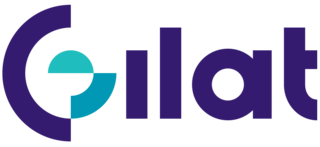
Vivo, known as Vivo Brazil, is a brand of Telefônica Brasil, a subsidiary of Telefónica and the largest telecommunications company in Brazil. It is headquartered in the Brooklin Novo neighborhood of São Paulo.

NET was a Brazilian telecommunications company that offered services such as cable television, broadband internet and telephony. The company's NET TV service had around 5.4 million subscribers as of Q2 2012. NET also operated the broadband Internet service NET Vírtua, with over 9 million subscribers as of Q2 2019 and telephone over cable with more than 2.5 million subscribers. It is owned by Mexican telecom giant América Móvil. On 11 July 2019, the NET brand was absorbed into the Claro brand, already used by América Móvil for its mobile business in Latin America. In early 2020, the NET brand was relaunched into the Claro NET brand, and was later discontinued in 2022.

Brasil Telecom S.A. was a major Brazilian telecommunications company headquartered in the Brazilian capital of Brasilia. The company was one of three landlines and eight mobile telephone companies – and only long-distance service provider – that emerged in Brazil following the break-up of Telebrás. Originally the company was called Tele Centro Sul, because its service covered the states in the central and southern parts of Brazil, namely Acre, Rondônia, Goiás, Tocantins, Mato Grosso, Mato Grosso do Sul, Paraná, Santa Catarina and Rio Grande do Sul, as well as the Distrito Federal. Since 9 January 2009, the company is a subsidiary of Oi.

Claro Company, known as Claro Mexico or simply Claro, is a Mexican company part of América Móvil, a Mexican telecom group. Claro serves clients in Argentina, Brazil, Chile, Colombia, Costa Rica, the Dominican Republic, Ecuador, El Salvador, Guatemala, Honduras, Nicaragua, Panama, Paraguay, Peru, Puerto Rico and Uruguay. The company's name means "bright," "clear," and also "of course," in both Portuguese and Spanish.
Internet in Brazil was launched in 1988, becoming commercialy available in May 1995. As of 2023, Brazil ranked fifth in the world with 181.8 million internet users. The country had an internet penetration rate of 86.6% as of January 2024. In March 2024, Brazil ranked 27th in the Ookla Broadband Ranking, with a median fixed broadband speed of 158.57 Mbit/s. Also, as per December 2021, Brazil had 41,4 million fixed broadband accesses, most of them FTTH. However, as per 2020, most Brazilians access the Internet through a mobile connection, with more than 200 million mobile internet access.
There are several rivers named São João River in Brazil:

TIM Brasil Serviços e Participações S.A., commonly known as TIM Brasil, is a Brazilian telecommunications company, subsidiary of Telecom Italia Finance S.A., which provides mobile and fixed telephony services.

Gilat Satellite Networks is a public company headquartered in Petah Tikva, Israel that develops and sells VSAT satellite ground stations and related equipment. Its shares are traded on the NASDAQ Global Select Market and on the Tel Aviv Stock Exchange.

Algar Telecom is a Brazilian telecommunications company present in the states of Goiás, Mato Grosso do Sul, Minas Gerais, Paraná, Rio de Janeiro, Rio Grande do Sul, Santa Catarina, São Paulo, and in the Federal District as well. The company is the only operator that remained private, even after the creation of Telebrás in the military regime, and it is characterized as the fifth largest company in the telecommunications segment. It serves more than one million and four hundred thousand customers - individuals, micro and small businesses, corporate customers, and carriers.

Events from the year 2008 in Brazil.

Events from the year 2004 in Brazil.

Events in the year 2009 in Brazil.

Events in the year 1996 in Brazil.

Events in the year 1993 in Brazil.

Events in the year 1997 in Brazil.

Events in the year 1998 in Brazil.

Events in the year 1984 in Brazil.

Events in the year 1981 in Brazil.

Events in the year 1972 in Brazil.









